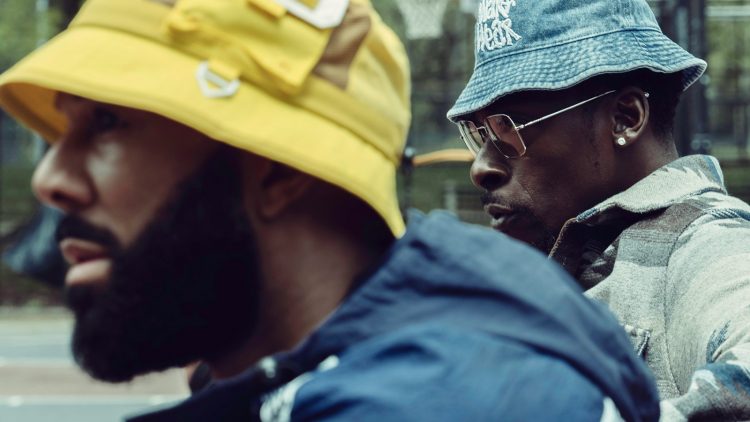Thirty years in the past, Frequent regarded again ruefully at his favourite style in “I Used to Love H.E.R.,” his traditional riff on hip-hop as a wayward ex-girlfriend. “She was actually the realest earlier than she bought into showbiz,” he lamented. The couple patched issues up after that, and Frequent grew from a prematurely scolding younger man to a genial elder statesman, upholding what he sees as rap’s conventional values with a smile and a severe dedication to his craft. It’s been a cheerful marriage, for probably the most half.
Now, in 2024, he’s wanting to renew his vows. Frequent has discovered rewarding grooves previously by teaming up with producers who each share and increase his imaginative and prescient, whether or not that was No I.D. on his early releases, J Dilla on 2000’s Soulquarian-era masterpiece Like Water for Chocolate, or a younger Kanye West on 2005’s Be. His associate this time is Pete Rock, who did as a lot as anybody to formalize the qualities that sparked Frequent’s love affair with hip-hop again within the Nineties by producing canonically nice songs like “They Reminisce Over You (T.R.O.Y.)” and Nas’ “The World Is Yours.” Pete Rock additionally produced Frequent’s 1996 single “The Bitch in Yoo,” a cruel assault on what the midwestern MC considered as Ice Dice’s hypocrisy. It’s one of many coldest diss tracks ever made, and also you’d should think about that the now-middle-aged guys behind it have a lot of ideas on the state of hip-hop in the present day. However you received’t discover any of that contemptuous pleasure or shit-starting perspective on The Auditorium, Vol. 1. That is an easygoing, respectful tribute to hip-hop’s essence and realness, filled with affectionate references to the music that’s nonetheless near Frequent’s coronary heart in spite of everything these years.
Flowing intentionally over an expensive unfold of prime Pete Rock beats, the griot from Chicago raps with knowledge and persistence. “The extra I get older, the extra I be sober/Minded what rhyme did — it outlined tradition,” he pronounces on “Stellar,” constructed on a flip of an previous Principal Supply track. On “All Sorts of Concepts,” he compares himself to NFL linebacker Micah Parsons (“Any topic I deal with/And grapple with wack dudes”) and notes that “money guidelines the whole lot round me/Besides my thoughts.” The critique of overly industrial music remains to be in there, however it’s delivered extra gently today. And if his punchlines can verge on dad-joke territory (“The best way I cross phrases/You don’t should log in”), extra usually they’re genuinely sharp and entertaining. “The highway will get rocky, you ain’t my Adrian, brodie!” he cracks on “Now and Then,” having enjoyable seeing what number of Hollywood puns he can pack into one bar. “The lord despatched my psychological to be greater than sentimental/The ventricles that I vent via are temples of what I been via,” he spits on “Sensible Up,” matching the power of his producer’s boom-bap acrobatics.
The duo’s musical chemistry peaks on tracks just like the soulful mid-album spotlight “We’re on Our Method.” Whereas Pete Rock spins a pattern of Curtis Mayfield protecting the Carpenters, Frequent waxes eloquent about his hometown’s wealthy historical past: “I stroll via the Chi like I used to be brother Harold/Washington, I bought me tons of votes that’s mayoral/Kisses for luck for Black companies and such/On our Dame {dollars}, yeah, we getting bucks.” Take a minute to unroll the layers of wordplay there — you most likely received’t remorse it. As hip-hop matures into its sixth decade, it’s good to have somebody as expert as Frequent training what’s not fairly a misplaced artwork but.
We’re altering our score system for album evaluations. You possibly can examine it right here



